Retired commissioner Alphonso Vaughn reflects on his community service
One of the preeminent modern leaders of the African American and Amarillo community, Alphonso Vaughn, retired in December of last year after a 16-year tenure as a Potter County Commissioner.
Vaughn, who has been heavily involved in the community since he returned in 1981, reflected on his service to the community and his time representing that community on the commissioner’s court.
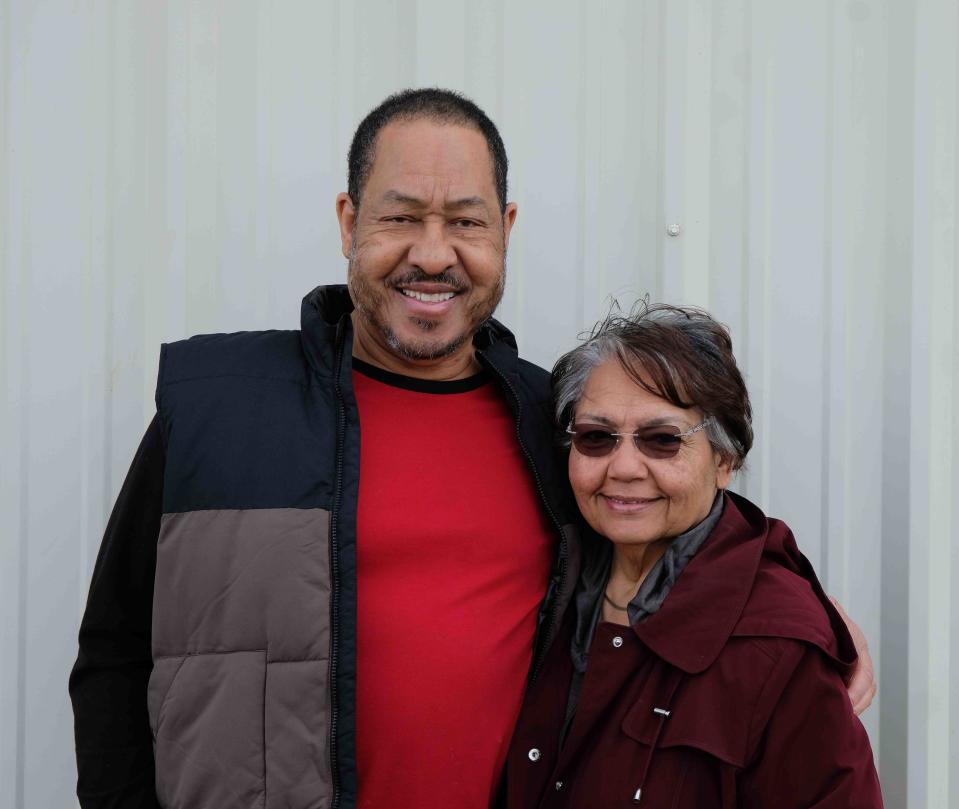
He was born in Amarillo in 1951 at the Dr. JO Wyatt Community Hospital, which operated at the current location of the Black Historical Center on 901 North Hayden. This community hospital serviced Black and Hispanic patients who were not allowed in local hospitals during the era of the '40s and '50s, and its history serves as a reminder that segregation was not some relic from generations ago.
After graduating from Palo Duro High School in 1970, Vaughn served in the Navy during the Vietnam era from 1971-1974. He then started his education at Amarillo College and finished it at the University of Texas at Austin and the University of Oklahoma, where he majored in journalism.
Upon returning to the Amarillo area in 1981, Vaughn said he felt compelled to get involved and do something to improve his community. He said that after living in Austin, it felt like a culture shock returning to Amarillo with the state of the city at that time.
“At the time I returned, I felt I had to do something, to get involved with making the community better, or I would go crazy," Vaughn added.
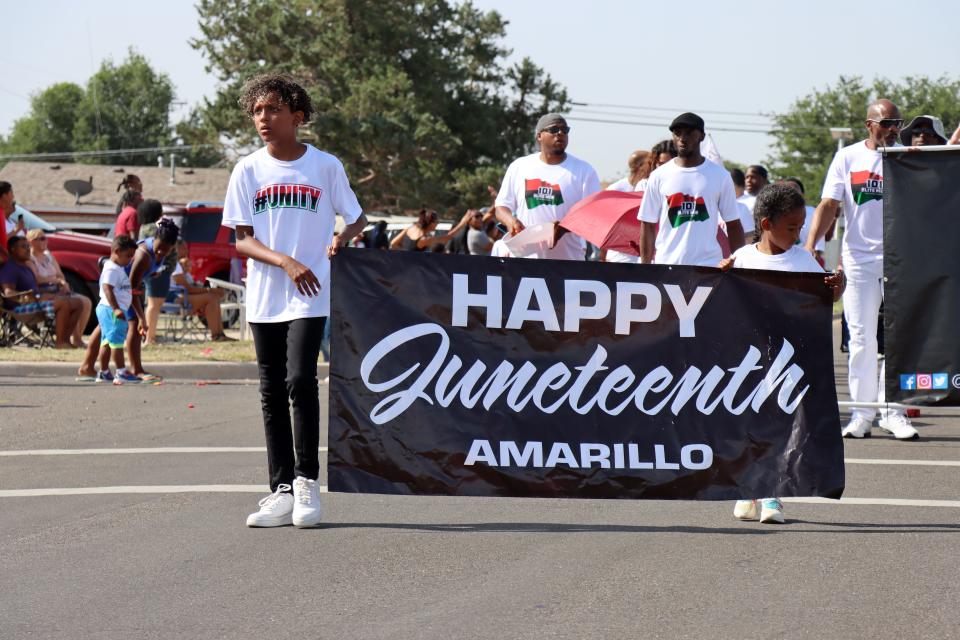
Bringing back Juneteenth
Vaughn said he was inspired and encouraged by a meeting with his second-grade teacher, Marvell White, to pursue his ambitions to bring Juneteenth back to Amarillo as an organized event.
"She was one of the most brilliant people I had been ever associated with in my life,” Vaughn said. “She was such an energetic and passionate woman.”
After asking her to help guide him in bringing back a Juneteenth celebration to Amarillo, White helped get him involved with the right people and bring that conversation back to light in the area, resulting in the return of the celebration in 1981.
"This all led back to having the first organized Juneteenth Celebration in probably decades, or a great number of years,” Vaughn said. “That really was my start to my involvement in the Amarillo community.”
White also helped guide Vaughn to become involved in the creation of the Amarillo United Citizen Forum, which he helped to come up with the bylaws for the organization. The forum now stands on the grounds of where Vaughn was brought into the world at the former site of the JO Wyatt Community Hospital.
Vaughn met his wife, Linda, in 1985, and after dating, the couple married in March 1987.
“She has put up with me all these years,” Vaughn said. “She is a beautiful person, both inwardly and outwardly. She is such an intelligent person. Her walking step by step with me as my right-hand person has been such a blessing in my life.”

Leadership in NAACP
After being asked to join the Amarillo Branch of the National Association for the Advancement of Colored People (NAACP) by then-president Pearlene Martin, Vaughn began his relationship with the organization. He served the NAACP in multiple capacities until becoming the president of the local chapter in 1994, a position he served in for a decade. In 2000, he was appointed the Northwest Texas regional coordinator for the NAACP.
In 1999, in his capacity with the NAACP, Vaughn was involved in bringing exposure to the Tulia Drug Bust of 1999, which got national attention for the arrest of 40 residents of the Tulia African American community out of 43 brought up on charges, which was more than 10% of the entire African American population of the city.
Vaughn said that he became involved with the Tulia case after a minister called about the railroading of the African American defendants in the drug bust. He said that the cases involved were facing unchecked power in prosecuting these defendants. With this information, he contacted the NAACP legal defense fund to explore the deficiencies in the legal actions.
The sting, which included no money, drugs or weapons, had no surveillance or corroborating evidence, and it was all dependent on the testimony of one lone narcotics officer, with no other witnesses. From this case, 38 people were convicted of charges on this one officer’s testimony, resulting in sentences of up to 90 years. All convictions from this case were thrown out due to unreliable testimony in 2003, and defendants still serving were pardoned.
With this case, a great light was shone on the inadequacies and inequalities in the system as it was in administering justice to African Americans without the ability to get competent counsel. This case would later have a great impact on Vaughn for his vision for an indigent defense program as a county commissioner.
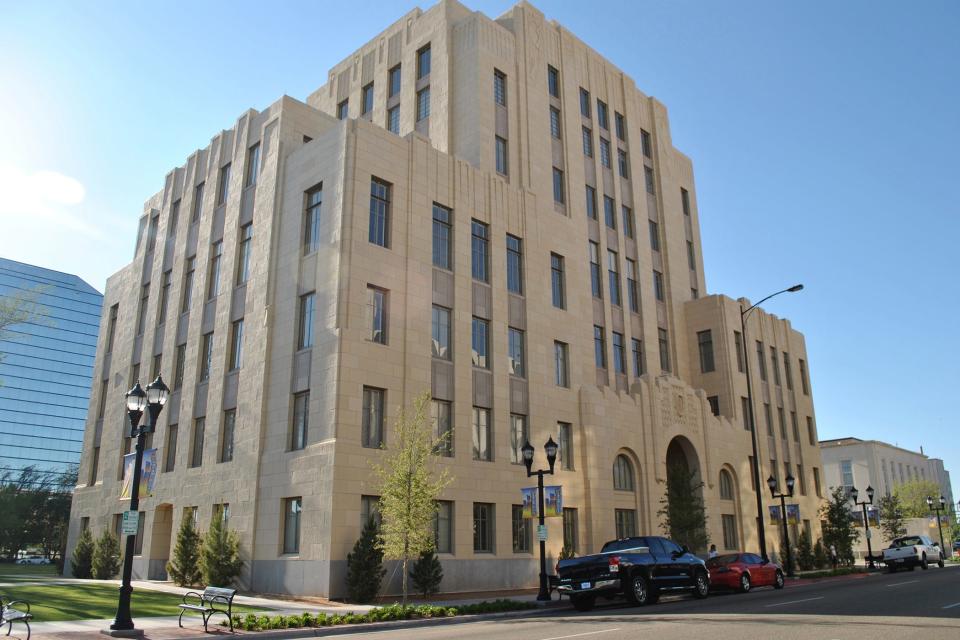
Balancing justice: From Tulia to indigent defense
Vaughn stated that after his tenure as NAACP president, he had no ambition to seek public office and preferred to work in an informal role as diplomat for the community. This changed when Iris Lawrence, who was serving her second term as a Potter County commissioner, told him that she wanted him to run for her position, to which he replied he did not want to run for office. Lawrence adamantly told him that he would run for the position, to which he consented to her wisdom and influence as a respected community member.
He states that he was not called, but rather coerced, to run for county commissioner. Ultimately, Lawrence convinced him that he was needed for the position to represent the community.
Reflecting on his 16 years as a commissioner, Vaughn said that his most noteworthy achievement was the newly created indigent defense program. This managed assigned council provides counsel for defendants who cannot afford their own counsel.
His proposed program received a setback in 2021 after a select committee recommended using the Neighborhood Defense Service (NDS), which has provided defense for the indigent population nationally for decades with substantial success to work with Potter County in this capacity. Following public and commissioners' court objections raised about NDS, Judge Nancy Tanner withdrew the recommendation to use that program, prompting Vaughn to write an op-ed questioning the wisdom of rejecting the committee’s recommendation.
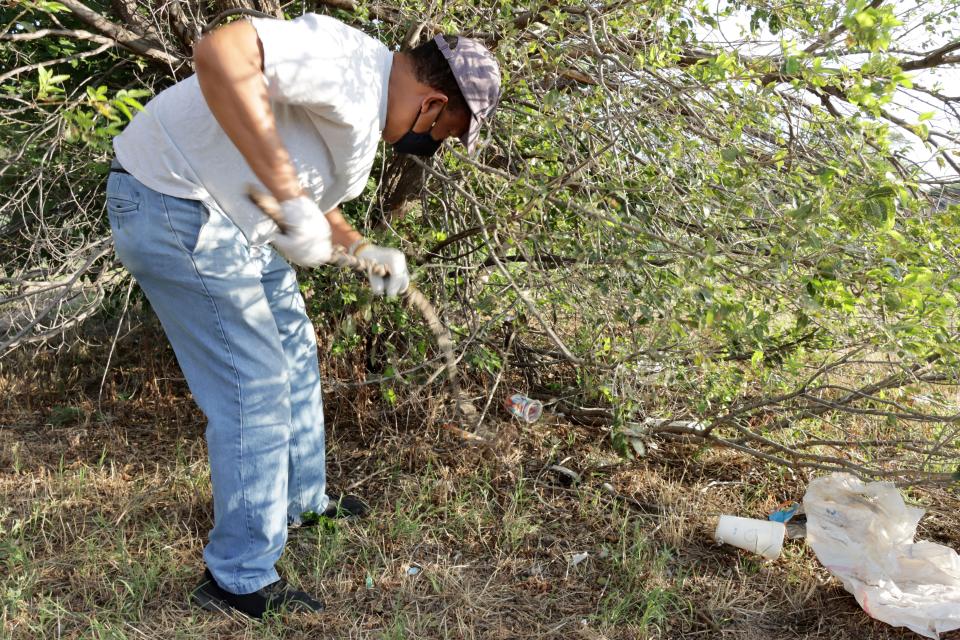
However, with the opening of the Potter & Armstrong County Public Defender/Managed Assigned Counsel office in December, Vaughn has finally seen the light at the end of the tunnel on the vision to provide an equitable defense to those being prosecuted.
“This was a dream that was six years in the making that I had,” Vaughn said. "I brought the idea to the commissioner’s court because I believed that we needed to do something to address the issue of those in the system that required counsel to address the flawed court-appointed attorney system. Many defendants did not see their counsel until the day of trial. This system severely hampered the right of those on trial to receive an adequate defense. I had several people that reached out to me about this issue.”
From this, Vaughn said the idea of an adequate public defender program went into development. He said that he then traveled to Wichita Falls and Lubbock to learn more about their systems to develop an idea of how to implement this type of program in Potter County, which led to the public defender assigned council now in place.
“We have always been very nonchalant and unappreciative of the indigent population in our society,” Vaughn said. “I think that one of the things that we wanted to do is to live up to what the Sixth Amendment says, that all individuals have a right to a defense. These disadvantaged individuals and all deserve equitable and adequate representation that will advocate for their defense.”
With this program, Vaughn feels that this will create more balance to the justice system for those that do not have the financial means to get a defense that can be a check on the prosecutorial side of the system, to ensure the justice system works as it's intended to work with the resources needed.
“This program not only helps in the courtroom, but also helps to work with defendants as far as mental health, working with these individuals with a structure where you can address issues outside of the courtroom that hampers these individuals in their lives,” Vaughn said.
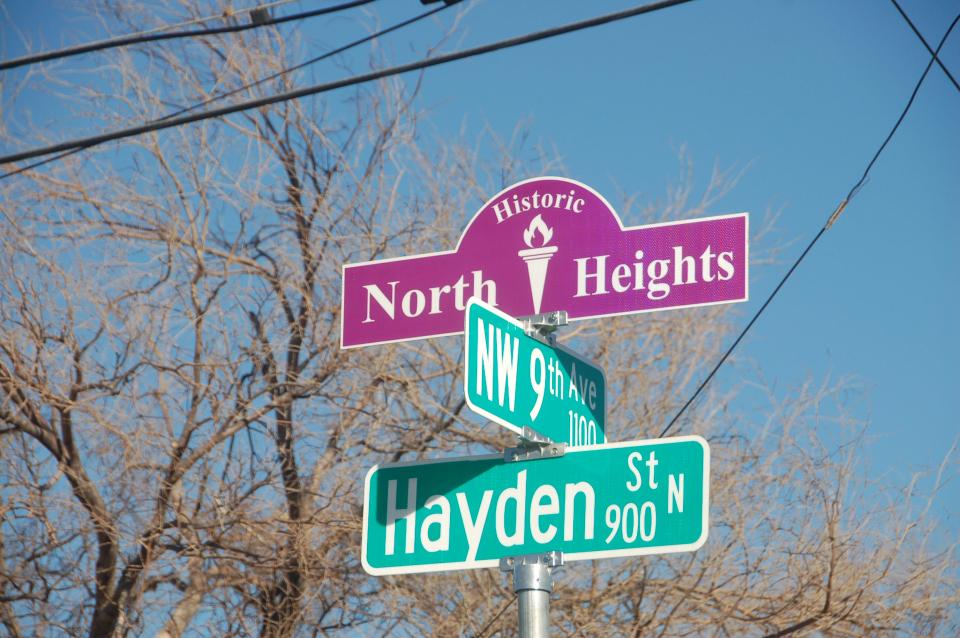
Impact in Potter County, North Heights and beyond
Vaughn said that becoming a commissioner opened up his eyes to many things that could be affected as a member of the commissioner’s court. He said that he was very proud of the building up of the fire department, the development of the law enforcement center, the district court and the strategic planning initiative. During his tenure, Vaughn also advocated strongly for county employees to receive fair compensation for their public work.
Vaughn said that now that he has retired from the commissioner’s court, he still plans to serve the community on local boards and committees. He also plans to do more work with the NAACP; he is now on the executive committee. He said he would be working closely with Amarillo NAACP President Melodie Graves and their leadership to share his experiences and knowledge with the organization. He also serves on the Another Chance House board, which helps to provide a positive path to create self-sufficiency for men who or homeless or at risk for homelessness in Amarillo.
Asked about issues still facing the residents he represented in the North Heights community, Vaughn said there is still a lot of work to be done in infrastructure for the community.
He said that he has and still will work for equitable treatment in education, policing and employment. The busing system has been an issue for years for students in the North Heights community. Vaughn said that many students in the area are picked up at times before 6 in the morning, being dropped off at school first and being among the latest dropped off in the afternoon, which creates issues for the child and the family.
With employment opportunities, Vaughn expresses that there is still concern that young Black people are still facing challenges of being successful in the job market.
“There is still a concern that if you look like me, you may not have an equitable chance in some instances to get those particular positions to be able to take care of your family as you move through life,” Vaughn said.
Concerns with policing and the Black community are still of concern for Vaughn and the North Heights community. He said that there is still a concern of being targeted just for driving while Black, which creates more unnecessary interactions with police. Vaughn says that a perception that victims of crime in that community have their cases come to a resolution at a slower priority than in other Amarillo communities is also an issue. To combat these issues, Vaughn helped initiate the Citizens Aligned with Law Enforcement in 2016 to help discuss and address concerns.
When looking forward as far as the future of North Heights, Vaughn says there has to be a concerted effort from all to work to make things better for the community.
“We have to come together as a community; you cannot leave it to one person or one group of people to make it better,” Vaughn said. "We have to instill within ourselves pride and say that we want our community to look as good as any community. We do not have all the resources that they have in some other communities. We need to form a core group of people working together that can help to enhance our community. We have to move forward and be supportive to be successful.”
This article originally appeared on Amarillo Globe-News: Alphonso Vaughn reflects on his community service

